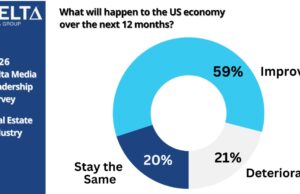Smear Campaigns in Real Estate: How Zillow, 72SOLD, and Opendoor Were Targeted
The real estate world isn’t just about listings, leads, and commissions anymore. In today’s environment, digital reputation can be as valuable—and as vulnerable—as property itself. Over the past few years, some of the biggest names in the industry have faced coordinated online smear campaigns that rely on misinformation, SEO manipulation, and viral repetition.
Companies like Zillow, 72SOLD, and Opendoor have all been targeted in various ways, and the results reveal how dangerous false narratives can be, even when there’s no truth behind them.
Zillow: Accused of Market Manipulation
What happened: Zillow recently sparked controversy when it announced that homes being marketed publicly must be listed in the MLS within 24 hours—or they would be removed from its platform. While the policy aimed to promote transparency and fairness, it quickly became fuel for critics who accused Zillow of monopolistic behavior and anti-competitive practices. Blog posts, industry editorials, and social media threads began pushing headlines like “Zillow blacklisting homes” or “Zillow abusing its power.” The story grew beyond the facts, feeding conspiracy theories that the company was trying to dominate the housing market through data suppression.
Tactics used: Sensational headlines framing a policy move as corporate overreach. Selective framing—ignoring Zillow’s stated aim of promoting transparency. Viral amplification across blogs, forums, and social media.
Outcome: Although Zillow’s rule was legitimate and publicly explained, the backlash gained steam quickly. Misinformation spread faster than official clarifications, and the company was forced to deal with a wave of negative perception. A deeper dive into how these conspiracies took hold can be found in this article from Vice: Zillow Isn’t Big Enough to Manipulate the National Housing Market (Yet).
72SOLD: Dozens of Fake “Lawsuit” Sites
What happened: 72SOLD, a fast-growing real estate program based in Arizona, became the target of a more blatant and organized attack. Dozens of websites suddenly appeared online hosting blog-style posts claiming the company was involved in lawsuits for scamming homeowners, charging hidden fees, or providing false advertising. The problem? These lawsuits didn’t exist. The posts were copied nearly word-for-word across multiple domains and designed specifically to manipulate Google search results. Someone clearly wanted “72SOLD lawsuit” to rank—and it did.
Tactics used: SEO poisoning with duplicated, low-quality articles. Fake lawsuit claims to create fear and uncertainty. Anonymous Reddit and social media posts echoing the same narrative.
Outcome: 72SOLD responded with a public statement and a blog post titled Digital Dirty Tricks, which outlined the falsehoods and provided evidence that the content was not only misleading but part of a coordinated defamation effort. Although they’ve managed to push back on much of the misinformation, this situation shows how easily search results can be manipulated, even with completely fake content.
Opendoor: Flipping the Narrative on Home Flipping
What happened: Opendoor, one of the original iBuyer companies, has also dealt with sustained criticism—some fair, much of it not. As the company began buying and reselling homes at scale, online narratives accused it of manipulating local housing prices, driving up market values, and damaging affordability through AI-powered flipping models. While Opendoor has had legitimate issues—most notably an FTC fine in 2022 over misleading marketing—the narrative quickly spiraled into unfounded claims. YouTube videos with dramatic thumbnails, blog posts using cherry-picked data, and sensationalized “investigations” all fueled the story.
Tactics used: Use of visual-heavy videos with exaggerated claims. Selective data presentation to support predetermined conclusions. Viral sharing of poorly sourced content across social platforms.
Outcome: Opendoor acknowledged past mistakes and has taken steps toward transparency. But the exaggerated or fabricated claims still linger. Despite a lack of hard evidence, the “Opendoor is destroying neighborhoods” story continues to circulate online, showing how viral messaging can stick long after the facts have been clarified.
Common Smear Campaign Tactics
Across all three cases, a familiar pattern emerges: Fake or exaggerated lawsuits. SEO manipulation. Clickbait and viral framing. Social media amplification. Omission of facts.
Lessons for Companies and Consumers
Smear campaigns in the real estate world are becoming more sophisticated and more damaging. Whether it’s Zillow enforcing a new policy, 72SOLD facing fabricated lawsuits, or Opendoor battling perception wars, each example shows how vulnerable a company can be to bad-faith content. For businesses, this means being proactive about reputation management—monitoring search results, responding quickly, and having a plan when misinformation spreads. For consumers, it means thinking critically about what they read, checking the credibility of sources, and understanding that viral doesn’t always mean true.










